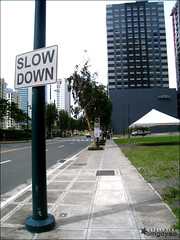
Now this is not the end. It is not even the beginning of the end. But it is, perhaps, the end of the beginning.
Sir Winston Churchill
This is it. The course ends tomorrow.
I will not dwell on my feelings this time. Of course I am sad, but I will not talk about that. Instead, I will lead you through these incredible ten weeks.
If you want to read about a week in more detail, I have linked each week to the appropriate post in this blog.
Week 1: Everything was new for us this week and our main task was orientation. We introduced ourselves in Nicenet, which was going to be our main communication tool throughout the course. I could immediately see that I was surrounded by dedicated and passionate teachers from all over the world. Our group was friendly from the start and was going to remain that way until the end of the workshop.
What I learnt in Week 1 is how to negotiate goals and behaviour models with the students. We learnt that by doing. During the following ten weeks we had a hands-on approach to everything and what we did this week was negotiate the way we were going to behave in Nicenet. Rubrics for Nicenet posts were shared with us and we could immediately see what was expected of us. We were also introduced to Jupiter Grades, where we would be able to follow our progress. I liked the transparency of the course from the beginning and in the future I will try to use Jupiter Grades or another online gradebook with my students.
Week 2: This week we did ABCD objectives, which is another thing that I have started implementing in my classes. I share an objective before an activity and then ask the students whether they think the objective was met. I feel that it helps everyone focus. We were introduced to various web search engines. Knowing how to do effective web search helps the teachers create lesson plans containing up-to-date topics that relate to the students' interests. This week we also read Digital Bloom's Taxonomy.
Week 3: We started using Delicious to bookmark and share and I started my Webskills stack. Ten weeks later, there are 175 bookmarks there. We did sites for listening and speaking (lots and lots of great resources) and I believe that's when the idea for my final project started to form in my head.
Week 4: This week was devoted to reading, writing and vocabulary. Again, the resources were great and it was then that I knew how I was going to organize online discussions with my students - I was going to use interesting and provocative readings and YouTube videos as writing prompts. I created a technology-enhanced lesson plan this week and, in fact, I got a chance to try it out last Wednesday. The students liked it.
Week 5 was busy, but wonderful. We did project-based learning and webquests and I created my first webquest on Zunal. I am planning to use it next week, when my students and I will go on a virtual trip to London. We learnt more about alternative assessment and rubrics and were introduced to Rubistar. Since we don't mark the students formally in our school, I love the idea of rubrics and alternative assessment to help them follow their own progress.
A very useful experience for me this week was marking my own Nicenet posts. It taught me more about academic posting than anything we had done before. I will definitely use self-assessment with my students in the future.
Many thanks to Courtney Cunningham for co-moderating this week's very lively discussion.
Week 6 was one of my favourite weeks. We learnt about large classes and interactive PowerPoints, but the week was really about engaging students. I love different interactive techniques for engaging students we read about that week and I have started implementing many of them (one-minute write, just-in-time teaching...). This was another very lively week in Nicenet and many thanks to Nicole Eustice, who co-moderated this week.
Week 7 again had a great topic - student autonomy. The idea of student autonomy is very dear to me and giving my students a lot of choice was something I did even before this workshop. Now I am glad to find out I was right in what I did. This week we also learnt how to use a single computer in the classroom effectively. Big thanks to Sean McClelland for guest-moderating this week.
In Week 8 we created online exercises and online classes. I created a Nicenet class for my CAE students and I will start working with them there next week. I also created some SMILE exercises and this tool is something that I will definitely use often in the future. Jeff Magoto introduced us to ANVILL and, as the week was coming to a close, I decided to try it out, so I created this lesson. To see it, you will have to log in with your Webskills guest username and password, or just ask me and I'll add you in.
Week 9 was about my favourite topic - learning styles. I feel that knowing the students helps the teacher a lot. I notice that I am slightly different as a teacher in every class I go into. I like to say that I am adaptable. A combination of the knowledge of the students' learning styles and the willingness to let the students be autonomous works well and it motivates the students.
And here we are - in week 10. Not the beginning of the end, but the end of the beginning. Every single piece of this beautiful jigsaw puzzle fits now.
When planning a course, start by setting objectives. What do the students need? What does the syllabus say? What do you want them to do and how well? Search the Internet to find appropriate learning resources. Then find out what the students' interests are and organize your classes so that they study English while researching their favorite topics. Start projects and make webquests and let them cooperate. Even when you are dealing with difficult things in the syllabus, make your classes interactive. Don't let the students' attention wonder. Pre-teach some of the difficult language using online quizzes and exercises.
Make sure that they know how they are doing in the course and exactly what is expected of them. Give them ample opportunities to assess themselves constantly. Provide a lot of feedback and ask for a lot of feedback. Give a lot of autonomy. Cater for different learning styles.
I really feel empowered after this experience. I believe that, if the teacher is empowered, the students will be empowered too. If the students are autonomous, the learning becomes an exchange, rather than an instruction. And technology is the medium through which this happens and the glue that keeps it all together.
I am grateful to the University of Oregon and to the American Embassy in Belgrade for giving me this learning opportunity.
My special thanks go to Robert Elliott, who was always there for us. A truly amazing teacher, modelling what he taught every step of the way.
Congratulations to each and every one of you who have travelled with me so far. Well done, friends.













